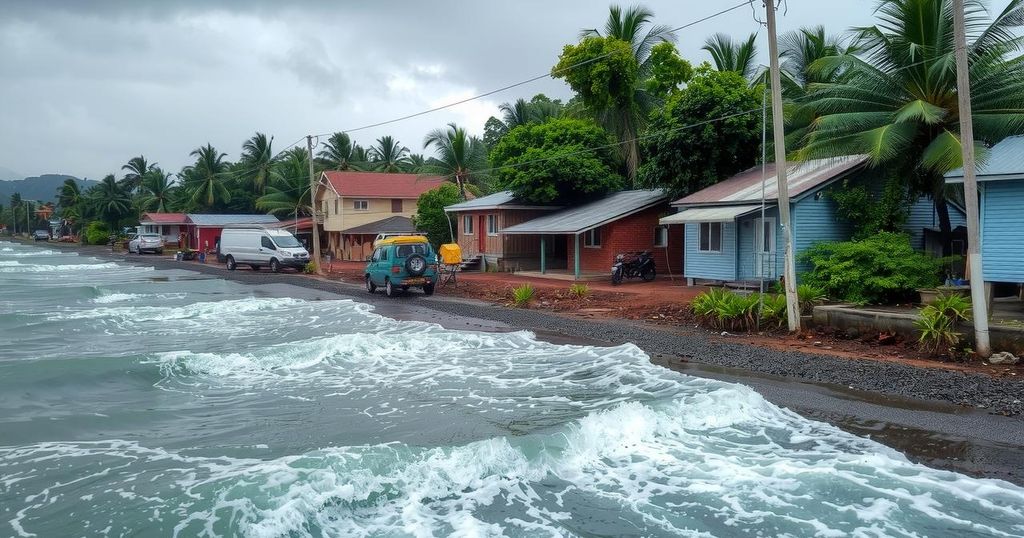The death toll from Cyclone Chido in Mayotte is expected to reach thousands, potentially hindering accurate assessments due to customs around burials. Essential services are heavily disrupted, and humanitarian aid efforts are ongoing. The cyclone, the worst in over 90 years, has raised serious concerns about infrastructure, access to clean water, and overall public safety on the island.
The aftermath of Cyclone Chido’s catastrophic impact on Mayotte is becoming increasingly dire, with French authorities estimating that the death toll may range from several hundred to potentially thousands. This cyclone, said to be the most devastating to strike the region in over ninety years, resulted in extensive infrastructure damage, including to the main hospital and airport facilities, further complicating rescue efforts. Since the storm, essential services such as electricity and telecommunications have been severely disrupted, raising serious concerns over clean drinking water availability throughout the island.
The cyclone made landfall with wind speeds reaching 140 mph, equating it to a Category 4 hurricane, and was also accompanied by significant storm surges. Emergency services, along with rescue personnel dispatched from mainland France and the nearby French territory of Reunion, are currently focused on locating survivors amidst the ruins. The area, already struggling socio-economically and largely inhabited by a Muslim population, faces challenges in accurately assessing the casualties due to religious customs regarding the immediate burial of the deceased.
The French Red Cross has condemned the situation as “unimaginable,” with humanitarian aid underway, including the distribution of drinking water and hygiene supplies to address the urgent needs of the affected population. As this crisis unfolds, the international response and recovery process will undoubtedly be critical to the island’s future stability and resilience.
Cyclone Chido has struck the French territory of Mayotte, located in the Indian Ocean, posing an unprecedented disaster for its over 321,000 residents. Underdeveloped and one of France’s poorest regions, Mayotte faces complex socio-economic issues, including overpopulation from immigration, particularly from the Comoros islands. The territory’s infrastructure and emergency response capabilities have been severely tested by this natural disaster, further exacerbating the existing challenges of poverty and inadequate housing for many residents.
In conclusion, Cyclone Chido has wrought devastating consequences on Mayotte, with a potential death toll that underscores the scale of this disaster. Essential services are critically impaired, leading to an urgent humanitarian response from national and international organizations. The situation in Mayotte highlights the interplay between natural disasters and socio-economic vulnerabilities, emphasizing the need for a robust recovery strategy to support the impacted population.
Original Source: www.forbes.com






